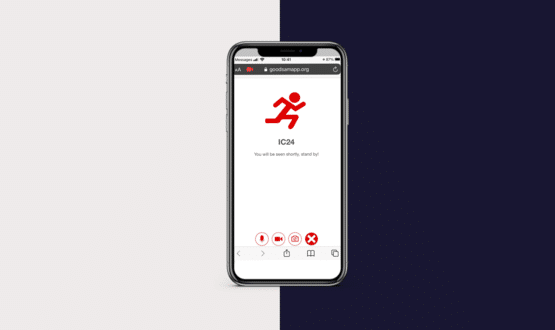Sheffield deploying video sign language service

Remote video sign language services are being rolled out for Sheffield patients that are deaf, helping to interpret in real time during hospital visits.
Sheffield Teaching Hospitals NHS Foundation Trust has signed a three-year contract with SignLive to provide the video sign language service, with the option to extend another two years. The deal is believed to be the first time the video technology has been used for sign language services in the NHS.
Clinicians at the trust can use a dedicated laptop to create a video link with a SignLive sign language interpreter within 45 seconds without any prior appointment.
Andrew Tims, who heads the project at the trust, said there was shortage of face-to-face sign language interpreters available in the Sheffield area.
“We did look at this [remote video] about three or four years ago, but the technology wasn’t there yet.”
Previously, the trust has had cancel appointments sometimes because an interpreter could not be found.
“This means a better experience for patients and not having their appointment cancelled.”
SignLive operates like a call centre for video sign language services, drawing on a pool of sign language interpreters from across the UK. Other parts of public sector, including the police and local councils, already use the service.
“So, we are not just restricted to BSL [British sign language] staff in Sheffield, but BSL staff across the UK.”
The trust has been testing the technology in its hearing services department for the past four weeks. The plan is to expand the service across the rest of the trust in February.
“We are rolling it out across the trust because it is the difference between cancelling an appointment or not.”
For emergency departments, it would be particularly useful in opening communication between a seriously ill patient and clinicians quickly, without having to find an interpreter, he said.
Vicki Proctor, the trust’s interim hearing services manager, said the new software was easy to use and provided clear benefits for patients.
“This new service will allow the department to provide appointments more flexibly as we are not constrained by the availability of face to face interpreters.”
The subscription-based service will also be cheaper, she said.
Face-to-face interpretation skills are still being used for longer and more sensitive appointments, such as breaking bad news, but most appointments under 45 minutes would switch to video.
Overall, the trust has about 50 appointments requiring a sign language interpreter a month. From February, about a third will switch to the video service.
Digital Health Intelligence: holds information on the clinical systems installed at trusts across the UK and uses this to calculate a Clinical Digital Maturity Index score. Sheffield Teaching Hospitals NHS Foundation Trust ranks 63 out of 153, with a score of 77. (requires log-in).




